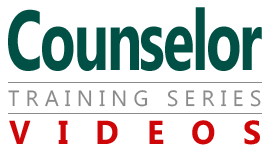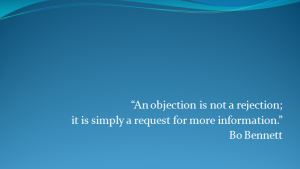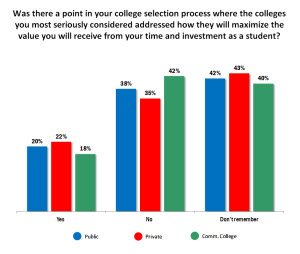We recently launched a series of free video training tutorials on our website and YouTube channel aimed at making your counselors even better at their jobs. On our website you’ll find an ever growing list of admission counselor tutorials. Subscribe to our YouTube channel for more tutorials, powerful data from national co-sponsored studies and interviews with some of your peers.
 Would you be surprised to learn that many students in your admit pool are withholding something from you? What if that “secret” is the one thing that could derail their plan to enroll at your college? Maybe it’s a concern. Or something they simply don’t like about your college. It may be a negative perception that’s based on a false assumption. It could be something huge or it may be something small, but it is something you need to know.
Would you be surprised to learn that many students in your admit pool are withholding something from you? What if that “secret” is the one thing that could derail their plan to enroll at your college? Maybe it’s a concern. Or something they simply don’t like about your college. It may be a negative perception that’s based on a false assumption. It could be something huge or it may be something small, but it is something you need to know.
We have found that nearly every prospective student has a hidden concern or objection that could disrupt their path to enrolling. Even the most skilled admissions counselors often find it difficult to uncover these “secrets.” Typically, students don’t open up and share their concerns for one of two reasons: A) Your prospective students are genuinely kind and don’t want to hurt your feelings, or B) they are concerned they will reveal something that will hurt their chance of being admitted.
They may not tell you but they have told us. We provide a tool called the Yield Enhancement System (YES) that gathers key information from students at a crucial point in their college selection process – after they have applied. YES gathers candid information from students in a college’s admit pool about their needs, preferences, perceptions and plans, including which colleges are truly under final consideration and what they are most concerned about.
Over the years we’ve asked more than a million college-bound students two simple questions: What are your top-three colleges and what are your positive and negative impressions of each?
Very often, we find that the one thing troubling the prospective student is actually a misconception. We see this time and time again, even among those students who completed extensive research, toured the campus and received exceptional one-on-one counseling. And, almost always, the concerns can be addressed and overcome, if only you, the counselor, can uncover them.
You can uncover hidden objections and help the student make an informed decision about which institution is the best fit for him or her. Skillful probing is the key to uncovering the things that may be holding a student back from making a final commitment. Give him or her permission to open up: “At this point, most students I meet have at least one major concern. It is a normal part of the process. What is yours?” Sometimes it’s the student’s misunderstanding about a fact. Sometimes it’s a false assumption.
Probing with open-ended questions and attentive listening will also help you peel back the layers of the underlying issue and allow you to remove a doubt or a fear. The student who was worried about getting lost on a large campus? A quick walk of the campus with the counselor was all it took to change her mind. And, the student who was concerned about a lack of social activity? That vanished when the counselor introduced him to several students who shared his interests.
For a quick video tutorial on another highly-effective technique for revealing and dealing with hidden concerns, watch here.
A highly-personalized approach is most important at this stage of the recruiting cycle. The goal is to best serve the student by truly understanding what he or she needs and wants. Ultimately, that will make both you and the student more successful. One of the keys is to address potential objections and concerns head-on. It must be part of your conversations with prospective students.
Longmire and Company’s on-campus Interactive Training Workshops dramatically improve the performance of counselors and staff in areas such as effective communication with students and parents, applying creative entrepreneurship to their jobs, validating past and planned actions against outcomes, and discovering and leveraging the motivations of students (and themselves).
The net result? Improved service to prospective students and families, measurable increases in yield, increased counselor and staff job satisfaction, enhanced teamwork, and innovations in work process within the department.
If you’ve thought about helping your staff with professional development, now is the ideal time to train and motivate your staff. Email or call me if you are interested in how we can help. Continue the conversation on Twitter @LongmireCo. For more information about Longmire and Company and the tools we have to offer, click here. Be sure to subscribe to Versions of Conversion today so you can stay up-to-date.
 Rick Montgomery is as an Enrollment Strategist at Longmire and Company. With over 20 years in higher education marketing, he brings an innovative and dynamic approach to helping colleges and universities meet their enrollment goals. Rick can be reached at 913/492.1265 x.708 or via email at rmontgomery@longmire-co.com.
Rick Montgomery is as an Enrollment Strategist at Longmire and Company. With over 20 years in higher education marketing, he brings an innovative and dynamic approach to helping colleges and universities meet their enrollment goals. Rick can be reached at 913/492.1265 x.708 or via email at rmontgomery@longmire-co.com.



 Bob Longmire is President of Longmire and Company, Inc. He is a recognized expert on the topic of how prospective students and parents form their college selection decisions – and how colleges can use that knowledge to grow and control their enrollment. He can be reached at (913) 492-1265, ext 709 or at
Bob Longmire is President of Longmire and Company, Inc. He is a recognized expert on the topic of how prospective students and parents form their college selection decisions – and how colleges can use that knowledge to grow and control their enrollment. He can be reached at (913) 492-1265, ext 709 or at



